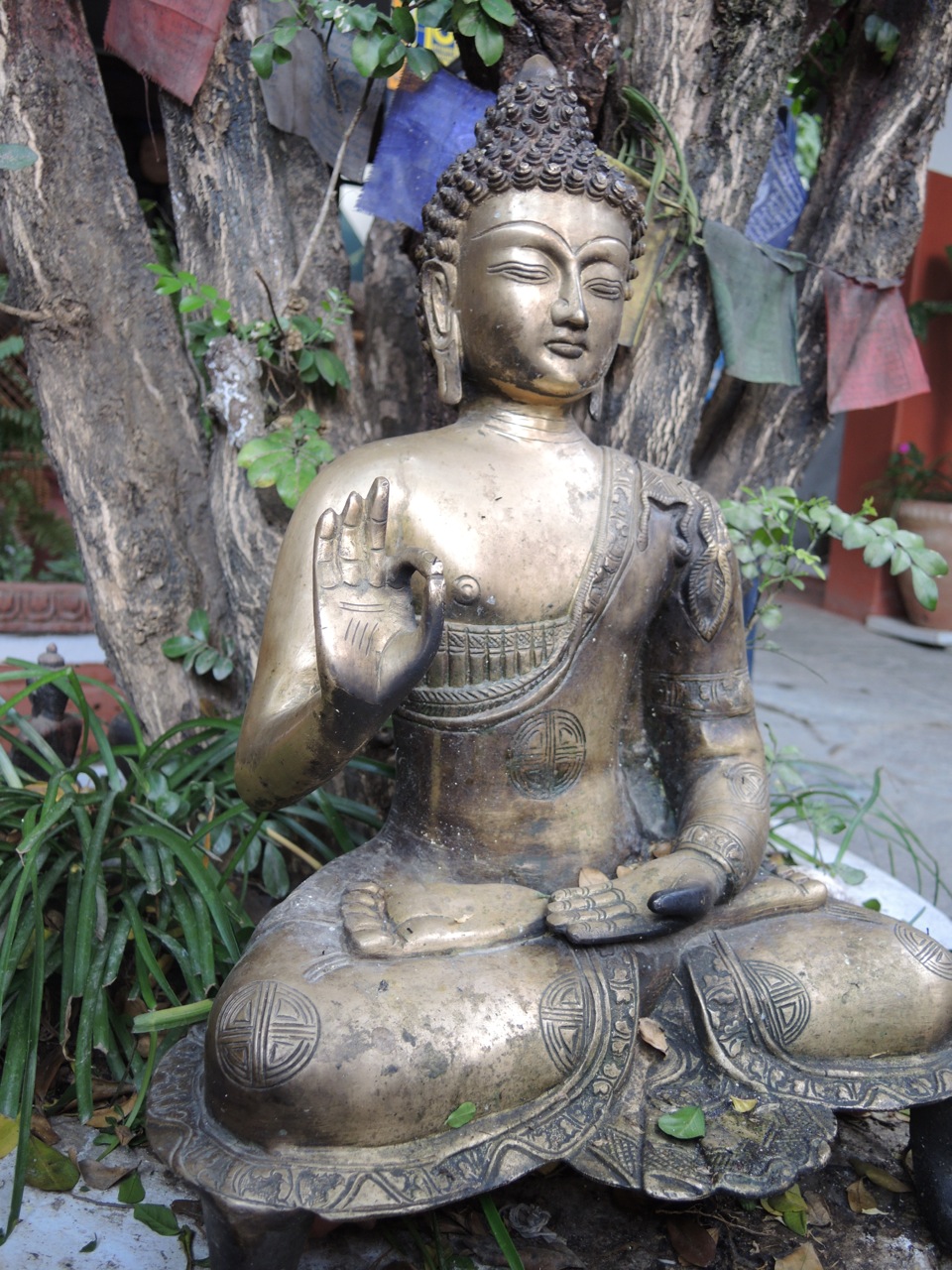Rules for Intentional Travel: Greetings
This is the a guest post by Ingrid Hannan in our series, Simple Rules for Intentional Travel, by – and for – intentional travelers.
Rule #2: Smile and greet people according to local custom
Yeah, it’s cheesy to say that smiles are the universal language, but there’s truth to it. Looking into someone’s eyes and cracking a big smile can change the tone of an interaction quickly.
I recall a moment getting on a bus in Cambodia; there was some confusion about seat assignments. Tensions rose as the language barrier prevented communication.
The American man broke through by patting the Cambodian woman on the hand and smiling and gesturing surrender. She smiled, and soon after, everyone else was too. Seats got rearranged, no one yelled, the bus took everyone to their destination. (Which, trust me, is not always how those interactions end on hot, crowded buses.)
Smiling, and learning the local equivalent of a handshake when meeting someone, show that you’re happy to be there and that you come in peace.
Beyond a grin, find the regional equivalent of a handshake, and use it. Sometimes it’s bowing, sometimes it’s kisses on the cheek; there are as many varied greetings as there are cultures.
You’ll never completely assimilate into a foreign country, but I think you can completely adapt.
Again, put yourself in the shoes of others. If, while walking down some street in San Francisco, someone came up to you and bowed, you might be confused. Same goes for thrusting your hand out towards a woman in Darjeeling.
The little things can go a long way toward smoother and more genuine interactions.
Importance of greeting people according to local custom
Here are three reasons why it’s important to greet people according to their own customs:
Cultural Sensitivity and Respect
Every culture has its own set of customs, traditions, and norms that are deeply rooted in its history and values. By respecting and acknowledging these customs, you demonstrate cultural sensitivity.
It also show that you value and respect the beliefs and practices of others. This fosters a sense of mutual respect and understanding, which is essential for building strong relationships and promoting harmony in diverse communities.
Avoiding Offense and Misunderstandings
Ignorance or disregard for someone’s customs can lead to unintended offense or misunderstandings. What may seem like a harmless gesture or remark to one person may be deeply offensive to another based on their cultural background.
By taking the time to learn about and adhere to people’s customs, you can avoid inadvertently causing offense or creating unnecessary tensions. This helps to promote open communication and positive interactions, leading to stronger interpersonal connections.
Building Trust and Rapport
When you make an effort to understand and respect someone’s customs, you demonstrate empathy and sincerity, which can help to build trust and rapport. People are more likely to feel comfortable and valued when they see that their customs are acknowledged and respected.
This creates a conducive environment for meaningful interactions, collaboration, and cooperation. By embracing diversity and embracing the customs of others, you can cultivate a sense of unity and inclusivity, enriching both personal and professional relationships.
Simple Rules to Lighten Your Cultural Footprint
- Learn (at least some of) the language
- Smile and greet people according to local custom
- Avoid resorts
- Stay a while
- Be respectful
- Spread the wealth
- Ignore the party scene
- Shift focus from taking to giving
- Go for a walk
- Befriend locals
Stay tuned for more great stories and reflections as Ingrid digs deeper into more of the Simple Rules for Intentional Travel.
 About Ingrid: Ingrid is a wanderlust at heart. She’s lived all up and down the west coast, studying environmental science and Spanish at the University of Portland and studying how to grow vegetables in Colorado and Washington.
About Ingrid: Ingrid is a wanderlust at heart. She’s lived all up and down the west coast, studying environmental science and Spanish at the University of Portland and studying how to grow vegetables in Colorado and Washington.
Her favorite activities include rock climbing, eating ice cream, and writing letters. Her travels have taken her from the Caribbean to East Asia and many destinations inbetween. The next places she hopes to travel to are New Zealand, Japan, and Norway.
You might also like these posts:
– Our Guide to Meeting Locals and Like-Minded Travelers
– How to have authentic, meaningful travel experiences in touristy areas
Like this post? Pin it for later or share with a friend!







